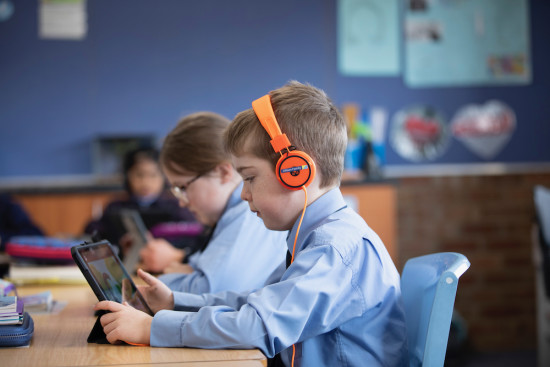
St Paul's
Moss Vale
Moss Vale
A Catholic Parish Primary School
 At St Paul's Catholic Primary School, we believe that all members of the community have the right to a learning and working environment free from intimidation, humiliation and harm. We all share a responsibility to create a culture of caring which will not tolerate bullying. View our useful links and resources below.
At St Paul's Catholic Primary School, we believe that all members of the community have the right to a learning and working environment free from intimidation, humiliation and harm. We all share a responsibility to create a culture of caring which will not tolerate bullying. View our useful links and resources below.
Pastoral care in Catholic schools clearly places an emphasis on social justice, relationships and the dignity and well being of all members of the school community. This is central to our belief as Christians. It is vital that all the community work together to create a safe, supportive environment in which all children can grow and thrive.
We believe that bullying must be taken seriously and is not acceptable in any form – including cyber-bullying, a growing concern for parents, carers and educators. In witnessing Christian values we reject ideas, beliefs and behaviours, which marginalise or victimise people.
Students learn best when they feel safe and valued. At St Paul’s we aim to:
View the Catholic Education Diocese of Wollongong (CEDoW) Social Media Policy and CEDoW Social Media Statement and Standards, which outline expectations around CEDoW student, staff and parent/community use of social media. In the context of creating vibrant Catholic school communities of faith and learning, users of social media are required to manage their digital footprint by interacting responsibly and ethically, in line with our Catholic ethos, respecting the dignity of all involved.
Students and parents/carers are also required to sign the CEDoW Student Responsible Use of Technology Agreement at the commencement of each year.
At St Paul's, students participate in learning experiences that focus on being responsible and ethical users of technology.
Teachers use a range of resources developed by the Catholic Education Diocese of Wollongong, Australian Communications and Media Authority, Office of the eSafety Commissioner and other online safety organisations to assist in the ongoing education of our students in being safe and responsible digital citizens.
The CEDoW Digital Citizenship Program Site provides a program of resources for our students on digital citizenship.
Below are some valuable links with information and resources to support students, parents, carers and educators in addressing bullying, online safety, digital citizenship and wellbeing. The CEDoW eSafety page may also have additional resources.
Australian Government body with resources empowering all Australians to have safer, more positive experiences online. Established in 2015 with a mandate to coordinate and lead the online safety efforts across government, industry and the not-for profit community.
Visit WebsiteThe eSafety Office has developed a parent portal specifically for parents and carers to learn about the digital environment and find tips on how to help children have safe and enjoyable online experiences.
Visit WebsiteA mission to reduce the incidence of bullying, cyber bullying and other cyber risks, and advocate for the safety and wellbeing of children.
Visit WebsiteEducational tools for students, parents and teachers, aiming to keep children safe from bullying, cyber bullying and violence.
Visit WebsiteSupported by the Australian Federal Police and delivered in partnership with the NSW Police, these cybersafety resources sensitively cover a range of topics including sexting, cyber bullying, online child exploitation, online privacy, and importantly what to do when something goes wrong.
Visit WebsiteA resource for families and school communities aiming to protect children from preventative measures at home, to safety outdoors, to cybersafety, to dealing with peer pressures.
Visit WebsiteKey information and links for parents and carers to explain the CEDoW Social Media Policy, the CEDoW Social Media Statement and Standards, and what it means when using social media in relation to CEDoW or any of its school communities.
View Resource SheetProvides support in the areas of internet safety and crime, and cyberbullying. Their factsheets provide information and parent advice on the following apps children may be using: Instagram; Facebook; and YouTube; Snapchat; Calculator; Tik Tok; Fortnite; Roblox; Discord.
View FactsheetsCEDoW schools ensure all staff and all students participate in Digital Citizenship training each year. Helping our CEDoW users of technology interact ethically in order to maintain a safe, responsible and respectful learning and working environment.
Visit WebsiteDigital citizenship resources empowering young people to be positive, smart and safe online.
Visit WebsiteThis directory brings online safety and wellbeing resources together in one place to make it easier for all Australians to get the right information and support when they need it
Visit DirectoryOrganisers of the National Day of Action against Bullying and Violence. Helping schools to create learning environments where every student and school community member is safe, supported, respected and valued.
Visit WebsiteResources for parents, students and educators to promote student wellbeing and the development of respectful relationships
Visit WebsiteA nonprofit organisation in the USA providing information and education on media and technology to "help families take charge of their digital choices".
Visit Website
Cybersafety resources from Susan McLean, former police officer specialising in the area of cybersafety
Visit Website